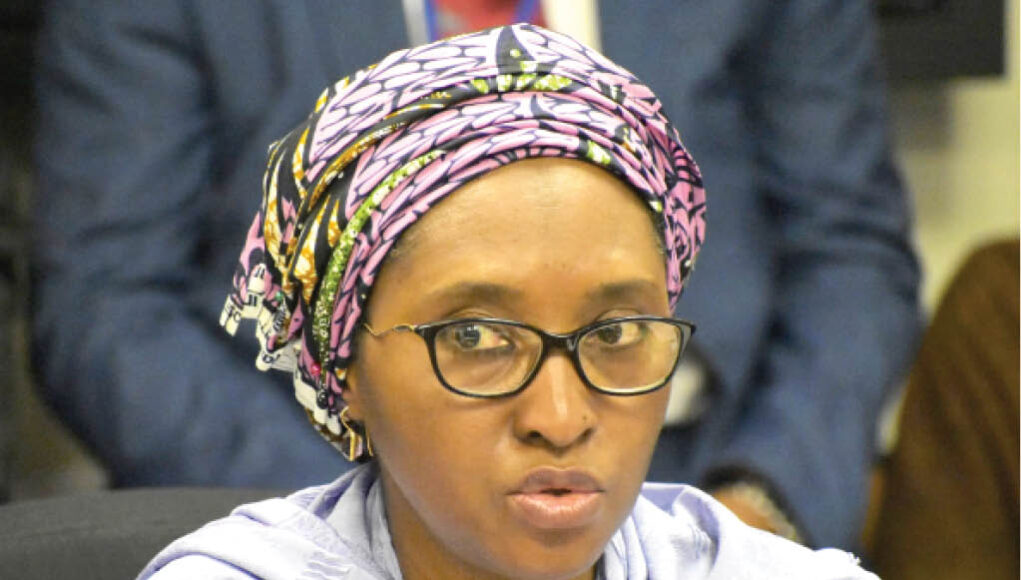
The Minister of Finance, Budget and National Planning, Zainab Ahmed, has said Nigeria does not need to seek debt cancellation or restructuring as its debt position is within the comfortable limits.
She also said Nigeria was not broke and could meet its debt obligation in the short, medium and long terms.
She spoke in Abuja on Thursday while presenting her ministry’s scorecard for the past seven years.
Asked if Nigeria should go for debt restructuring or cancellation, she said that the option was not on the table.
“We don’t have any need to restructure, our debt management strategy is being followed closely. We provide in our budgets, provision for debt service and it’s taken as first line charge. We haven’t defaulted on any loan – local and external.
“We have projections of meeting our debts obligation in the short and medium terms.
“We’re comfortable in terms of our ability to pay our debts. So, we’re not going for any debt relief and we’re not going for any debt restructuring,” the minister said. President Muhammadu Buhari had at the United Nations (UN) General Assembly in September, sought debt cancellation for developing countries, which he said, were faced with a “debilitating chokehold on their fiscal space.”
Buhari had said, “There is a need to address the burden of unsustainable external debt by a global commitment to the expansion and extension of the Debt Service Suspension Initiative to countries facing fiscal and liquidity challenges as well as outright cancellation for countries facing the most severe challenges”.
According to data from the Debt Management Office (DMO), Nigeria’s total public debt stock was N42.84 trillion ($103.31 billion) as of June 30. The finance minister yesterday also noted that even though the federal government was not earning enough, its revenue position was improving with oil theft now reducing.
“We’ve also witnessed a significant increase in non-oil revenue. Unfortunately, oil revenue has underperformed because of criminality but recently, the NNPC has reported that oil theft has been curtailed and we are beginning to see a pick-up in production levels. This means more revenue will come to the government,” she said.
She said the NNPC Ltd was now doing about 1.3 million barrels per day as against about 800,000 we previously did.
Ahmed, however, stressed that what the FG earned was not enough to cover its needs hence the borrowings.
She said the borrowings had been practical, sustainable and guided by a debt management strategy.
“There is a debt management board chaired by the vice president. The debt management strategies are being followed judiciously. At 33 per cent to GDP, we’re still the lowest within countries that are our comparatives” she stated.
“But again, I still say we have a revenue problem in spite of the increase in non-oil revenue because our performance is eight to nine per cent of GDP, the revenue is not enough. We are a population of about 200 million who deserve better service.” On the support of developments in the states, the minister said: “A total of N5.03 trillion plus an additional $3.4 billion has been released to states by the federal government over the life of this administration.
“The support covers the 13% derivation refund to oil-producing states, a refund for the construction of federal roads, ecological support, support from the development of the Natural Resources Fund, Paris Club refunds, support from the Stabilisation Fund, COVID intervention, among others.”
She also said the government was evaluating its revenue-earning enterprises to attract more investments and revenues.
“Restructuring of the Ministry of Finance Incorporated (MOFI), which manages GOEs and government-linked companies (GLCs) to drive value creation from different asset classes or investments of the FGN.
“MOFI’s current portfolio consists of 130 corporate entities valued at about N19 trillion.
The goal in the next 10 years is to grow MOFI’s Assets Under Management (AUM) to about NGN 34 trillion and drive a minimum annualised average return of 15% (about N5.1trn), she said. Earlier, the Minister of Information and Culture, Lai Mohammed, said no administration, since the beginning of the current political dispensation in 1999, had done better than the Buhari’s government in supporting states with all sorts of financial interventions.
He said when the administration assumed office in 2015, at least 27 states could not pay salaries.
“Imagine what would have happened if Mr. President had not offered a helping hand, without discrimination, to the states. But for Mr. President, most of the states would have been plunged into serious socio-economic crisis, with dire consequences for the country,” he said.
Mohammed noted that the support to the states came at a time when national resources had dwindled drastically and at a time there were competing needs in many areas, including infrastructure, security, global pandemic and others.”


















































